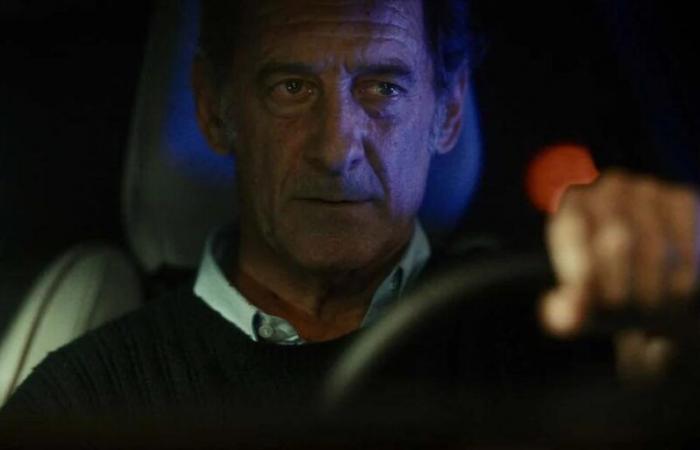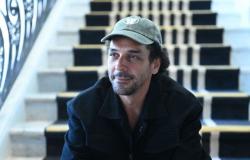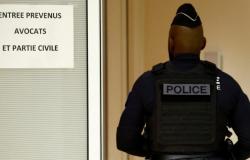Vincent Lindon is not, in an interview, a detached, lukewarm, withdrawn interlocutor. He responds promptly, welcomes questions with a warm, perplexed, worried, or downright taken aback look. In short, it is there and there. Like in the cinema. In “The Choice,” in theaters November 20, he plays an engineer whose life is falling apart. Once again, he “is”, more than he plays.
In “The Choice”, throughout the film, we see you behind the wheel of a car. Wasn't driving an obstacle to concentrating on the text?
No, on the contrary! The art of acting is trying to transcribe as best as possible something that we do every day naturally, without doing it the way we do it ourselves, since we are playing a character. In the cinema, as in the theatre, the outfit makes the monk: it is always simpler to play using “real” props, in short to play Napoleon dressed as Napoleon, rather than in blue jeans.
You are actually driving, the car is not, contrary to custom on film sets, towed by what we call a “traveling car”…
I play better in a car if it really runs. If it's being towed, part of my brain says, “It's being towed.” » As a result I am annoyed and tempted to do too much to give the illusion of actually driving.
Your character, Joseph Krauss, seeks to resolve a serious personal crisis with dignity. If he had been a bastard, would you have made the film?
When a script is very well written, everything is acceptable. In “Schindler's List”, the role of Ralph Fiennes, the SS officer, a monster, is fascinating, because it is very well written. A despicable character cannot bear to be poorly written, or crudely written, because in a certain way, he becomes even more disgusting… I could totally agree to play a bad guy, and certainly not to play him overbearingly , or irony: if we introduce this distance, we do not embody. When I accept a role, I go all out.
In cinema, it's like in love, the heart commands
Faced with a case of conscience, Joseph absolutely wants to act in an exemplary manner, at the risk of sacrificing everything…
This is a sign that he is not very aligned with himself. When we behave well, we do not obsessively chase after being exemplary. People who are very concerned about appearing virtuous are shady, and that means they haven't always been impeccable.
It is also the story of a man who builds himself against his father…
This has been the history of the world for 2000 years! Children develop with or against their parents, and rather against them. Boys against the father in particular. All parents weigh on their children, who themselves will weigh on their children… I noticed one thing around me: the father is often the enemy, and the grandfather, on the other hand, the beloved and caring figure .
The shoot was short, seven nights, with a small crew. Your character communicates with other characters only via telephone conversations. How did you adapt to this atypical system?
Regularly, in interviews, journalists ask me questions to which not only do I not know what to answer, but which I have never asked myself, fortunately in fact. When I make a film, it's very intuitive. My relationship with cinema is organic. I don't analyze. I read the script, and, depending on my feelings, I go there, or I don't go there. In cinema, it's like in love, the heart rules.
What do you expect from directing actors?
We say “direct the actors”, but the real challenge is to choose them well. If the actor or actress is well chosen, a huge part of the work is done. With filmmakers, I talk a lot about details, about concrete things. Psychological, philosophical discourses do not interest me.
Joseph Krauss supervises a huge construction site. In your filmography, you play characters very anchored in reality…
In my roles, I try to be a spokesperson, to be “the men”, to be everyman. What delights me is when, in the street, people tell me that they recognized themselves in me.
The more things I have to say, the less I want to express myself
Do you watch your films again?
Never ! I hate seeing myself on screen.
Do you plan to one day direct?
No. I'm probably too proud for that. I'm too afraid of doing it wrong. If it means spending two and a half years of my life making an average film, “not bad” as they politely say, that doesn't interest me. And since there is zero chance that I will do “Citizen Kane”…
However, we feel that you have a lot to say…
The more things I have to say, the less I want to express myself. I've been giving fewer interviews in recent years. I stay at home. There are so many talk shows, programs… If I go to a television show, the second I hear the hosts tell me, between snickers, “we loved the film, you're incredible!” “, I just want to say “stop”, or “you said exactly the same thing to your guest yesterday, and you will say the same thing to your guest tomorrow”… Sometimes I wish I could, live, turn towards the French and tell them: “You know, all these numbers, I don’t believe them, I’m not fooled. »
“The Choice” by Gilles Bourdos. Duration: 1 hour 17 minutes. Theatrical release Wednesday.
Journey to the end of the night
A man on the run. Or on the way to its truth. One evening, Joseph Krauss (Vincent Lindon), an engineer, decides to abandon the imposing construction site he is responsible for, and to leave his family. He escapes, by car, requisitioned by a personal crisis whose motives are gradually revealed to the viewer. Unity of place (the interior of an automobile), of time (one night), a single character on screen: in “Le Choix”, sixth feature film by Gilles Bourdos (“Renoir”), remake of the film British “Locke”, the energy, the tension come from the story. The story keeps twisting and turning. It progresses through the telephone conversations that multiply between the failed engineer and his loved ones. Children, wife, colleagues… This dense, pressured film (barely 1 hour 20 minutes) describes, quite fascinatingly, an ambiguous man, trapped by his obsession with virtue and perfection.






